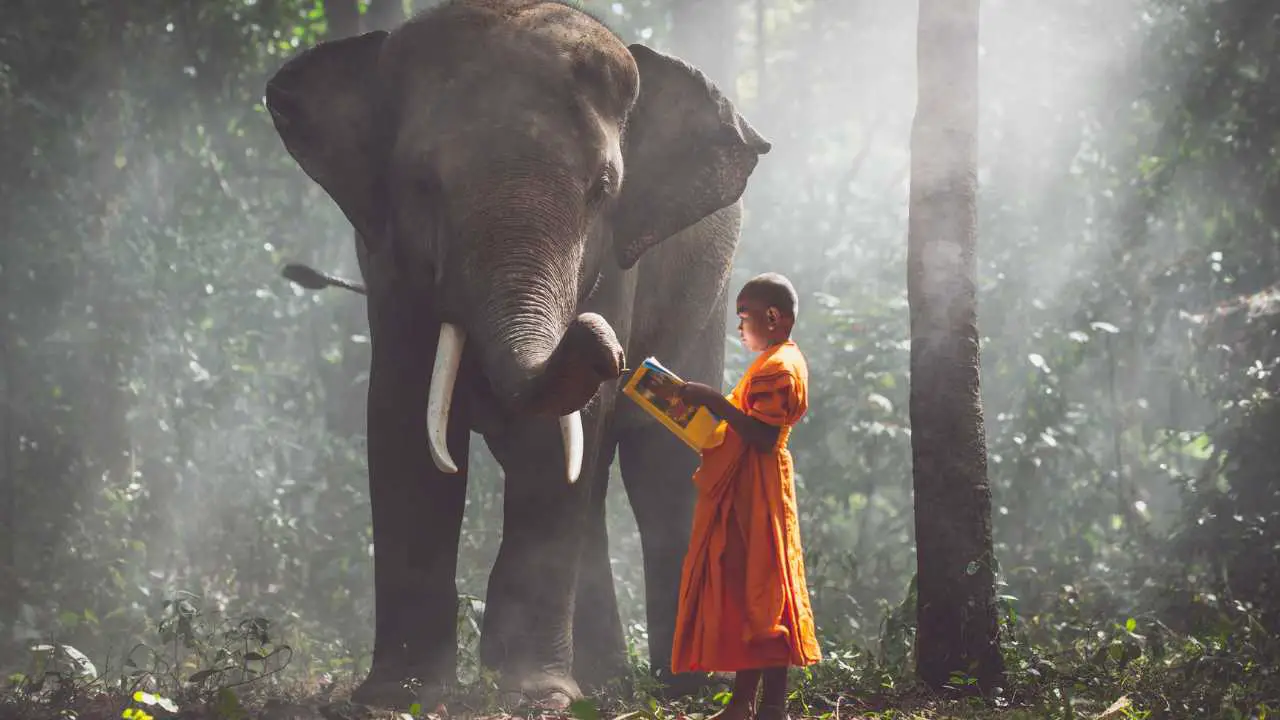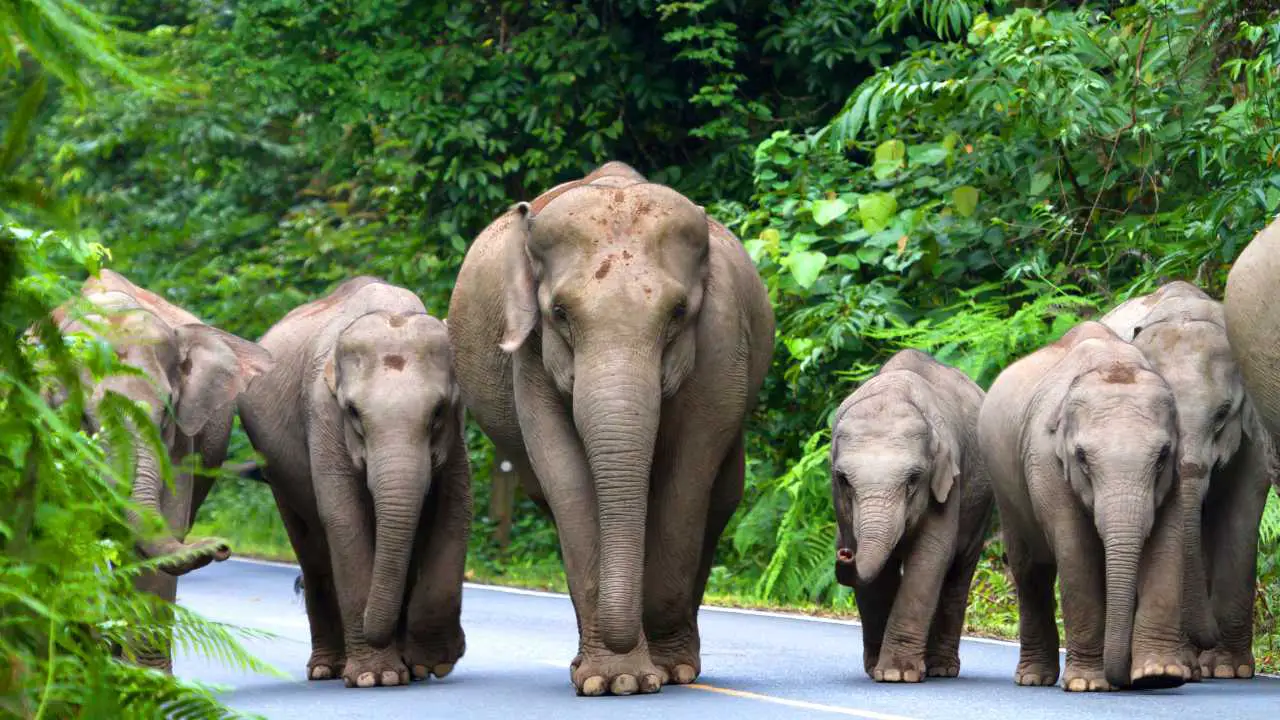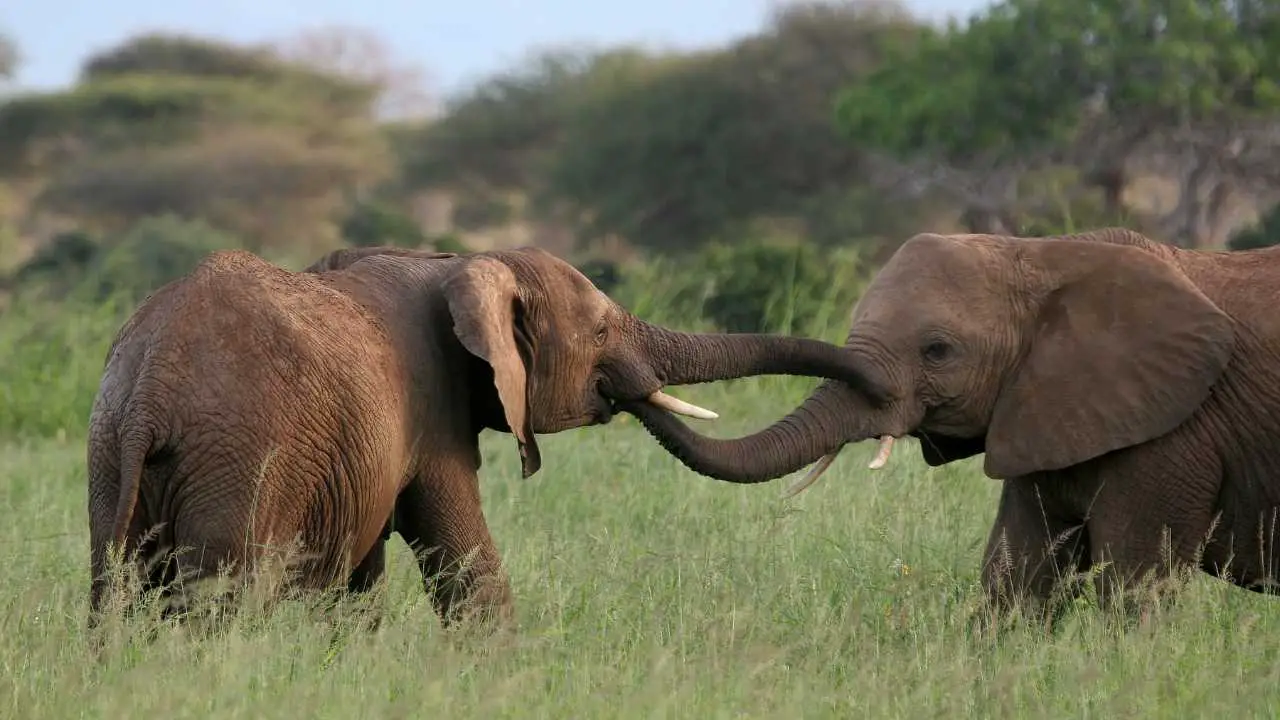Elephants have long been known to show intelligence and a variety of complex social behaviors. They are known to show empathy towards each other and distressed humans. It led many to theorize that elephants may think of humans as “cute” in a similar way we think of bunnies and puppies. Here, we gathered information about what elephants think of humans, do elephants express their emotions, and whether elephants are capable of complex thoughts.
What Do Elephants Think Of Humans

It is claimed that elephants may think of humans as cute, in the similar way we humans think of bunnies, puppies, or kittens. It may be true for elephants in the zoo, but not for wild individuals. Leith Meyer, who is the director of the Center for Veterinary Wildlife Studies and associate professor of veterinary and pharmacology at the University of Pretoria, said that:
“When you look at the response of wild elephants to humans, they definitely do not see us as cute, rather they see us as a threat”.
He said that wild and trained elephants have a different reaction to humans. He explains that the past experiences of wild elephants have produced an evolutionary instinctive pattern of behavior that led them to react toward humans as they would other predators, like lions and leopards, etc. The idea that elephants think of humans as “cute” possibly comes from the trained elephants in the zoo, who are familiar with people and depend on humans for their survival. In such situations, elephants may abnormally change their behavior to ensure their survival.
There is also no research on the elephant’s brain activity. Every part of the human brain is well-researched with the help of MRI which lights up in response to specific thoughts and emotions. But Meyer said that such research is not possible in elephants due to several reasons like;
- An elephant’s head is too big for an MRI machine
- For an effective MRI scan of the elephant’s brain reactions, it would have to be done when the elephant is awake
- It is also impossible to know that activated parts of the elephant’s brain work the same functions as the human brain
So it sounds like we will never know what elephants think of humans. However it seems that trained elephants value their certain relationships with certain people.
Do Elephants Like To Interact With Humans?
Elephants raised in captivity appear to like interaction with humans. In zoos, they tend to accept humans as a part of their life and do not mind humans touching them or riding on their backs.
Are Elephants Capable Of Complex Thoughts?

Research shows that elephants are capable of complex thoughts. They have long been known to show intelligence and a variety of complex social behaviors, including learning, mimicry, cooperation, self-awareness, communication through gestures and vocalizations, use of tools, altruism, and behavior associated with grief. Studies suggest that they may also understand pointing; non-verbal communication through a finger or gesture specifying a direction.
Elephants are one of the few animal species that can recognize themselves in mirrors. Studies have also shown that elephants demonstrate problem-solving skills and the ability to use tools. Ruby was an Asian elephant who lived in the Phoenix Zoo in Arizona, USA, who was well known for creating paintings.
Studies suggest that elephants can recognize different humans based on their appearance and scent. They can even distinguish which person is kind and which one is cruel. Studies also indicate that elephants show compassion and signs of empathy towards distressed humans who care for them.
Do Elephants Express Their Emotions?

Yes, elephants express their emotions. When in distress, they flap out their ears and emit sounds of low-frequency. Other elephants of the herd stroke their trunks with the distressed elephant and try to comfort him.
Elephants are known for altruism (selfless concern for the well-being of others) and even aid other distressed species including humans. They aid their hurt relatives and even unrelated elephants. In India, an elephant was helping people upon instruction from the trainer to lift logs and keep them in the pre-dug holes by following a truck. At one moment, the elephant refused to keep the log in a certain hole. When the trainer came to investigate the problem, he found that a dog was sleeping in that hole. The elephant only kept the log when the dog was awake and gone.
How Do Elephants React When A Herd Member Dies?
Elephants are known for mourning when another elephant passes away. They show an extreme interest in the bones of their kind and are often observed to gently investigate them with their trunks and feet. They remain very quiet when doing so. Sometimes, they also visit the remains of a completely unrelated deceased. They cover the body of the dead with dirt, tree leaves and branches. In Africa, elephants behaving this way towards dead and sleeping humans is common too.
Are Elephant Brains More Complex Than Humans?
Some parts of the elephant’s brain are more complex than the human’s while others are not. The elephant’s brain weighs over 5kg and has about 257 billion neurons, which is about three times the number of neurons in the human brain. The general connectivity and functional areas of the elephant’s brain are also similar to humans and other mammals, but its structure has several unique differences.
The cerebral cortex of the elephant brain has only one-third of the number of neurons as compared to the human’s cerebral cortex. The cerebral cortex is part of the brain responsible for cognition, thought, memory, language, consciousness, perception, and awareness.
Elephants’ brains have a more complex gyral pattern with more numerous brain folds than the brains of humans and other primates. However, their gyral pattern is not more complex than that of the cetaceans. Gyri are ridges in the cortex of the mammals brain associated with cognitive abilities.











